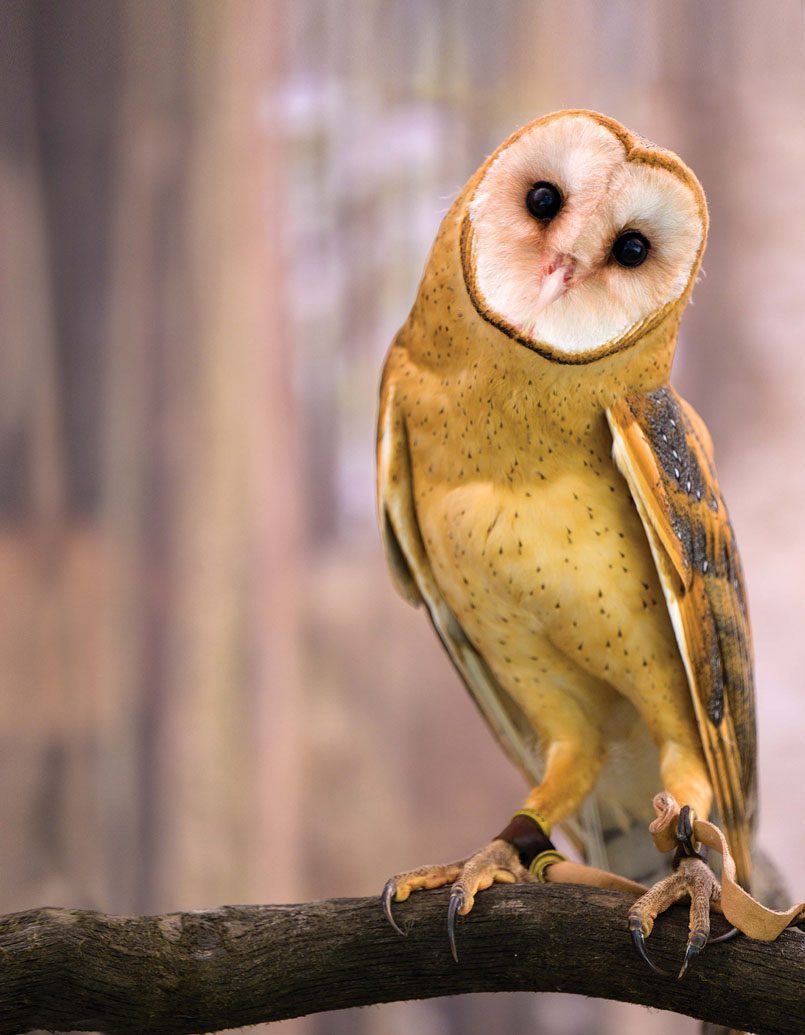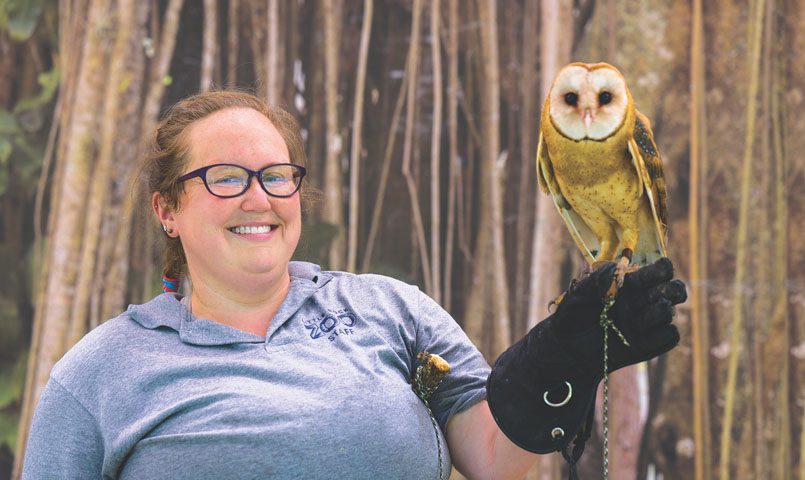31 Jul 2021 Look hoo’s coming to town
By Becky Bell
The Little Rock Zoo is training a small new ambassador who weighs about as much as a baseball but will have a big impact in spreading information about owls in Arkansas.
Originally named Orion because zoo personnel thought she was a boy, Bellatrix, or more commonly known as Bella, is a 1.1-pound barn owl, said Lee Ann Goette, a certified bird trainer who works in the Conservation Education Department. A blood test was needed to determine the gender of the bird.

Eventually, Bella’s job will be to travel across Arkansas to anywhere from preschools to senior centers to show people what she looks like and give people a chance to learn more about what they can do to help owls have longer life spans in the wild. She will also sometimes be on exhibit at the zoo and the Arkansas Heritage Farm Exhibit, which the zoo operates.
“Barn owls are not in danger, but all owls face issues in the wild,” Goette said. “When people poison rodents on their property, it will poison owls who eat them. Barn owls are usually comfortable living in human dwellings, so you can buy an owl box and put one near your barn. Screech owls might come, too.”
Bella has been hand-raised since she hatched on March 27. She came from the World Bird Sanctuary in Valley Point, Missouri. The mission of the sanctuary is to preserve the earth’s biological diversity and secure the future of bird species and their natural environments through the three pillars of education, conservation, and rehabilitation.
The first thing people notice about Bella is her beauty, but she can be a handful for trainers who are trying to get her ready to become an ambassador, Goette said.
“She is very cute, and she is testing her limits, so we call her the Terrible Two,” she said. “She can fly, so she likes to see where she can fly and explore. She likes the snake room, where she can go and watch the snakes move around.”
Despite the occasional challenges of training Bella, the opportunity is one that Goette, who has worked at the Little Rock Zoo for 10 years, appreciates. The trainer had flirted with the idea of being a veterinarian at one time but fell in love with animal education because she got to develop a stronger bond with the animals she engaged with.
“It’s exciting but nerve-wracking because you want to make sure you do everything right, so the animal is as comfortable with you as possible,” she said. “But it’s exciting because you can see their personalities develop and watch them learn.”
Goette describes owls as “opportunistic carnivores.” She said they would eat a snake if they could catch one but primarily dine on rodents, both in the wild and at the zoo. Bella’s trainers use her diet to help reinforce positive behaviors, such as coming back to land on them when she flies off and getting into her crate when needed. Her diet consists of rodent pieces, chicks, and what is called a bird-of-prey diet. As small as she is, she can eat an entire rat if given the opportunity, Goette said.

When not on the road as an ambassador, Bella will eventually live in an individual enclosure housed with the other birds of prey. Most birds of prey are solitary, so they all have their own space, Goette explained.
As she continues to be trained, handlers must wear a glove to protect themselves from her talons, which are the way owls most often defend themselves and hunt their prey. She has sometimes pecked them with her beak, but Goette said this was likely because she was trying to determine if they had a food item. Although owls are known to have outstanding hearing, they do not see very well, she said.
Any schools or senior centers that want Bella to pay them a visit when she grows a bit more and is more well-trained are welcome to make an appointment online or call the zoo at 501.661.7200. They may also see Bella during a show when she has matured.
For more information about Bella visiting your town, go to littlerockzoo.com.








